Shifting Biopolitics and the Making of Modern Families

5 out of 5
| Language | : | English |
| File size | : | 1558 KB |
| Text-to-Speech | : | Enabled |
| Screen Reader | : | Supported |
| Enhanced typesetting | : | Enabled |
| Word Wise | : | Enabled |
| Print length | : | 231 pages |
The modern family is a relatively recent invention. In the past, families were typically large and extended, with multiple generations living under one roof. Today, the nuclear family—consisting of a mother, father, and children—is the norm. This shift has been driven by a number of factors, including industrialization, urbanization, and the rise of individualism.
But the modern family is also a product of shifting biopolitics. Biopolitics is the study of how power is exercised over life itself. It examines the ways in which scientific and technological advances have reshaped our understanding of kinship, reproduction, and childrearing. These changes have had a profound impact on our social and cultural lives.
## The Rise of Scientific Reproduction
One of the most significant changes in biopolitics has been the rise of scientific reproduction. In the past, reproduction was a natural process that was largely beyond human control. But today, thanks to advances in medicine and technology, we have the ability to control when, where, and how we reproduce. This has given us unprecedented power over our own bodies and the bodies of our children.
The rise of scientific reproduction has had a number of consequences for the modern family. First, it has led to a decline in fertility rates. In many developed countries, the average number of children per woman has fallen below the replacement level. This is due in part to the fact that women are now able to delay childbearing until later in life, when their fertility is naturally lower. Second, scientific reproduction has made it possible for people to have children outside of traditional relationships. This has led to the growth of single-parent families and families with same-sex parents.
## The Medicalization of Childbirth
Another significant change in biopolitics has been the medicalization of childbirth. In the past, childbirth was a natural process that was typically handled by midwives and other non-medical professionals. But today, most births take place in hospitals, under the supervision of doctors and nurses. This has led to a number of changes in the way that childbirth is experienced and understood.
The medicalization of childbirth has made childbirth safer for both mothers and babies. But it has also made childbirth more medicalized and less personal. Many women feel that they have less control over their own bodies and their own experiences during childbirth. This can lead to feelings of dissatisfaction and even trauma.
## The Changing Role of Fathers
The rise of scientific reproduction and the medicalization of childbirth have also led to a changing role for fathers. In the past, fathers were typically seen as the breadwinners and protectors of their families. But today, fathers are increasingly involved in the care and upbringing of their children. This is due in part to the fact that women are now more likely to work outside of the home, and fathers are needed to help with childcare. It is also due to the fact that fathers are more likely to be present at the birth of their children, and they are more likely to be involved in their children's lives from the very beginning.
The changing role of fathers has had a number of positive consequences for families. Fathers who are involved in their children's lives are more likely to have close and loving relationships with them. They are also more likely to be involved in their children's education and development. This can lead to better outcomes for children, both in terms of their academic achievement and their social and emotional development.
##
The modern family is a product of shifting biopolitics. Scientific and technological advances have reshaped our understanding of kinship, reproduction, and childrearing. These changes have had a profound impact on our social and cultural lives. The modern family is a more diverse and complex institution than it was in the past. It is also a more fluid and dynamic institution, as it continues to adapt to the changing world around us.
5 out of 5
| Language | : | English |
| File size | : | 1558 KB |
| Text-to-Speech | : | Enabled |
| Screen Reader | : | Supported |
| Enhanced typesetting | : | Enabled |
| Word Wise | : | Enabled |
| Print length | : | 231 pages |
Do you want to contribute by writing guest posts on this blog?
Please contact us and send us a resume of previous articles that you have written.
 Fiction
Fiction Non Fiction
Non Fiction Romance
Romance Mystery
Mystery Thriller
Thriller SciFi
SciFi Fantasy
Fantasy Horror
Horror Biography
Biography Selfhelp
Selfhelp Business
Business History
History Classics
Classics Poetry
Poetry Childrens
Childrens Young Adult
Young Adult Educational
Educational Cooking
Cooking Travel
Travel Lifestyle
Lifestyle Spirituality
Spirituality Health
Health Fitness
Fitness Technology
Technology Science
Science Arts
Arts Crafts
Crafts DIY
DIY Gardening
Gardening Petcare
Petcare Andy Crouch
Andy Crouch Kevin Anderson
Kevin Anderson John Helyar
John Helyar Robert M Schoch
Robert M Schoch Rhonda V Magee
Rhonda V Magee Tim Clarkson
Tim Clarkson Carla Hannaford
Carla Hannaford Leslie Klenke
Leslie Klenke David Jefferson
David Jefferson Nina Varela
Nina Varela Jennie Lynn Gillham
Jennie Lynn Gillham Arthur Kleinman
Arthur Kleinman Christian Heath
Christian Heath Winifred Gallagher
Winifred Gallagher Donn F Draeger
Donn F Draeger Roger Highfield
Roger Highfield Kevin Shea
Kevin Shea Jim Flynn
Jim Flynn Jared Benson
Jared Benson Natalie Babbitt
Natalie Babbitt John Daido Loori
John Daido Loori Jason William
Jason William Mark Hyman
Mark Hyman Omar D Lewis Sr
Omar D Lewis Sr Bridgit Danner Lac
Bridgit Danner Lac Pseudo Nym
Pseudo Nym Connie Goldsmith
Connie Goldsmith Jeffro Johnson
Jeffro Johnson Dr Sarah Mitchell
Dr Sarah Mitchell David Hawkins
David Hawkins Tom Rosenbauer
Tom Rosenbauer Judy Ford
Judy Ford Robert Parris Moses
Robert Parris Moses Henry Fielding
Henry Fielding Prosanta Chakrabarty
Prosanta Chakrabarty Kinley Macgregor
Kinley Macgregor Damon B Akins
Damon B Akins Edmund Nequatewa
Edmund Nequatewa Rolf Potts
Rolf Potts Sol Adoni
Sol Adoni Debbie Felkins Tamez
Debbie Felkins Tamez Jennifer M Rosner
Jennifer M Rosner Chaim Potok
Chaim Potok Frances A Yates
Frances A Yates Donna Tartt
Donna Tartt Marian Stamp Dawkins
Marian Stamp Dawkins Behrouz Moemeni
Behrouz Moemeni Rainer Martens
Rainer Martens Bill Pennington
Bill Pennington Joy Vines
Joy Vines Daniel W Cunningham
Daniel W Cunningham Tami Fox
Tami Fox Hp Newquist
Hp Newquist Martin Woodward
Martin Woodward David Sowell
David Sowell Rachel E Spector
Rachel E Spector Gordon Webster
Gordon Webster Becky Albertalli
Becky Albertalli Helene St James
Helene St James Mary Sheedy Kurcinka
Mary Sheedy Kurcinka Clare Keyes
Clare Keyes Tony Ray
Tony Ray Slavka Bodic
Slavka Bodic Rob Eastaway
Rob Eastaway Laurie David
Laurie David Stephen Prata
Stephen Prata Delphi Classics
Delphi Classics Chris Dowhan
Chris Dowhan Uma Dinsmore Tuli
Uma Dinsmore Tuli Jennifer Lw Fink Rn Bsn
Jennifer Lw Fink Rn Bsn Melody Groves
Melody Groves Atul K Mehra
Atul K Mehra Sabrina Chevannes
Sabrina Chevannes Rita Jablonski
Rita Jablonski John Mcphee
John Mcphee Rosicrucian Order Amorc
Rosicrucian Order Amorc Elijah N Daniel
Elijah N Daniel Emily Wibberley
Emily Wibberley Pawel Guziejko
Pawel Guziejko Mary H K Choi
Mary H K Choi Kathleen Huggins
Kathleen Huggins Tom Holland
Tom Holland Samara Caughey
Samara Caughey Sadie Robertson
Sadie Robertson Vivien Newman
Vivien Newman Charles Cooper
Charles Cooper James R Hansen
James R Hansen Joya Goffney
Joya Goffney Sarah Edmondson
Sarah Edmondson Educational Brain Games
Educational Brain Games Carl Allchin
Carl Allchin William E Hearn
William E Hearn Stanley L Jaki
Stanley L Jaki K A Linde
K A Linde Marissa Meyer
Marissa Meyer Kent Nerburn
Kent Nerburn Caroline Finnerty
Caroline Finnerty T H Lain
T H Lain Chris Rodell
Chris Rodell Zhongxian Wu
Zhongxian Wu Judith A Cohen
Judith A Cohen Ricky Roberts Iii
Ricky Roberts Iii Joey Rive
Joey Rive Jay Sokolovsky
Jay Sokolovsky Sarah Castille
Sarah Castille Ruth Haley Barton
Ruth Haley Barton Paul Seabright
Paul Seabright Sara T Gibbs
Sara T Gibbs John R Anderson
John R Anderson Tina H Boogren
Tina H Boogren Andrew Hudson
Andrew Hudson Mark Cannizzaro
Mark Cannizzaro Sue Fleming
Sue Fleming Rosalind Miles
Rosalind Miles J P Mcevoy
J P Mcevoy Rachel Lynn Solomon
Rachel Lynn Solomon Thomas F Hornbein
Thomas F Hornbein John Lofty Wiseman
John Lofty Wiseman Gabriel Weinberg
Gabriel Weinberg Mark Lester
Mark Lester Claire Ahn
Claire Ahn Edgar H Schein
Edgar H Schein William Ma
William Ma Lisa Cron
Lisa Cron Carolyn Savage
Carolyn Savage Philip Reeve
Philip Reeve Howard Thurman
Howard Thurman Annette K Larsen
Annette K Larsen Andrew Thompson
Andrew Thompson Andrew Lang
Andrew Lang Mike Wells
Mike Wells James D Watson
James D Watson Jon Gertner
Jon Gertner Ilene And Gary Modica
Ilene And Gary Modica John Macgregor
John Macgregor Christine Pearson Casanave
Christine Pearson Casanave Rupert Sheldrake
Rupert Sheldrake Jordan Ellenberg
Jordan Ellenberg Morten Lund
Morten Lund Andrew M Greeley
Andrew M Greeley Ginger Scott
Ginger Scott Dan Anderson
Dan Anderson Nadia Shammas
Nadia Shammas Hugh P Mckenna
Hugh P Mckenna Simson L Garfinkel
Simson L Garfinkel Vanessa A P
Vanessa A P Seth J Gillihan Phd
Seth J Gillihan Phd Mark Vanhoenacker
Mark Vanhoenacker Peggy Orenstein
Peggy Orenstein Michael Epperson
Michael Epperson Andrew Reeves
Andrew Reeves Marie Sherlock
Marie Sherlock Sean B Carroll
Sean B Carroll Jerry Z Muller
Jerry Z Muller Dave Chambers
Dave Chambers Edward C Klatt
Edward C Klatt Peter Kaminsky
Peter Kaminsky Bryan Mellonie
Bryan Mellonie Alexander Bennett
Alexander Bennett Aaron Edkins
Aaron Edkins Marcus Tomlinson
Marcus Tomlinson Linda Goldberg
Linda Goldberg Dan Allan
Dan Allan Stephen Rea
Stephen Rea Joseph Bronson
Joseph Bronson Timothy Gordon
Timothy Gordon Kirk Goldsberry
Kirk Goldsberry Jack David Eller
Jack David Eller Ruta Sepetys
Ruta Sepetys George Washington Cable
George Washington Cable Xan Barksdale
Xan Barksdale Jon Paschetto
Jon Paschetto E K Johnston
E K Johnston David A French
David A French Stacey Lee
Stacey Lee Christopher O Shaughnessy
Christopher O Shaughnessy Kay Pranis
Kay Pranis Ron Hackett
Ron Hackett Chris Mcmullen
Chris Mcmullen Carolyn S Schroeder
Carolyn S Schroeder Lauren Kate
Lauren Kate Adam Minter
Adam Minter Erin Macpherson
Erin Macpherson Andy Ankowski
Andy Ankowski Tom Bertrand
Tom Bertrand Dr John Hockey
Dr John Hockey Paul Davies
Paul Davies Carolyn Coker Ross
Carolyn Coker Ross Justine Bateman
Justine Bateman Kari Kampakis
Kari Kampakis Jonathan Scott
Jonathan Scott Ashley Schmitt
Ashley Schmitt Palle Yourgrau
Palle Yourgrau Michelle Madow
Michelle Madow Jonathan Bennett
Jonathan Bennett Vincent Norman
Vincent Norman Mona Liza Santos
Mona Liza Santos Teresa Palmer
Teresa Palmer Anne Marie Scully
Anne Marie Scully K L Walther
K L Walther Shannon Van Den Berg
Shannon Van Den Berg John H Carroll
John H Carroll Bruno David
Bruno David Sarah Digregorio
Sarah Digregorio William Gurstelle
William Gurstelle Lisa Silverman
Lisa Silverman Kuldeep Singh
Kuldeep Singh Andy Burnham
Andy Burnham Neil Harman
Neil Harman John Atherton
John Atherton Ira J Chasnoff
Ira J Chasnoff Mallory Striesfeld Ms Lpc
Mallory Striesfeld Ms Lpc Akil Palanisamy
Akil Palanisamy Lisa Roberts
Lisa Roberts Liz Prince
Liz Prince Rosita Boland
Rosita Boland Ruth Bell Graham
Ruth Bell Graham Jonathan C Slaght
Jonathan C Slaght Jamie Thornton
Jamie Thornton John Eberhart
John Eberhart Janis Abrahms Spring
Janis Abrahms Spring M J Abadie
M J Abadie Sam Maggs
Sam Maggs Antipodean Writer
Antipodean Writer M L Ray
M L Ray Chelsea Johnson
Chelsea Johnson Charles Darwin
Charles Darwin Andrew Phillip Smith
Andrew Phillip Smith Harvey Motulsky
Harvey Motulsky Cary Hanson
Cary Hanson Marianne Ryan
Marianne Ryan George H Odell
George H Odell Cathy Kelly
Cathy Kelly Steve Lage
Steve Lage Nicholas D Souza
Nicholas D Souza Ross Bernstein
Ross Bernstein Luna Fox
Luna Fox Sheryl Feinstein
Sheryl Feinstein Ronald T Kneusel
Ronald T Kneusel Kirk W Johnson
Kirk W Johnson Lucy Atkins
Lucy Atkins Seabury Quinn
Seabury Quinn Thomas Clarkson
Thomas Clarkson Michio Kaku
Michio Kaku Richelle Mead
Richelle Mead Jerusha Clark
Jerusha Clark Garth Nix
Garth Nix Erika V Shearin Karres
Erika V Shearin Karres Andrew X Pham
Andrew X Pham Eva Longoria
Eva Longoria Kevin Thomas
Kevin Thomas Brianne Donaldson
Brianne Donaldson C Todd Lombardo
C Todd Lombardo Hope Jahren
Hope Jahren Ruth E Van Reken
Ruth E Van Reken Tim Huffman
Tim Huffman Jim Burnett
Jim Burnett Melisenda Edwards
Melisenda Edwards Beverly Asante Puschmann
Beverly Asante Puschmann Andrew Hempstead
Andrew Hempstead Linda Whitenton
Linda Whitenton Yasuharu Okuda
Yasuharu Okuda Emily Kerr
Emily Kerr Antonio Pigafetta
Antonio Pigafetta P Anastasia
P Anastasia Ben Foss
Ben Foss Dennis J Stanford
Dennis J Stanford Leigh Bernacchi
Leigh Bernacchi Guns Ammo
Guns Ammo Samuel Hideo Yamashita
Samuel Hideo Yamashita Rachel Pepper
Rachel Pepper S G Taylor
S G Taylor Ernest Becker
Ernest Becker Walter Martin
Walter Martin Erwin Schrodinger
Erwin Schrodinger Carla Killough Mcclafferty
Carla Killough Mcclafferty Gila Leiter
Gila Leiter Andrew Peterson
Andrew Peterson Lisa Bevere
Lisa Bevere Andrew Hodges
Andrew Hodges Christopher Dunn
Christopher Dunn Richard G Klein
Richard G Klein Sally Cook
Sally Cook J D Lenzen
J D Lenzen J K Rowling
J K Rowling Michael Polanyi
Michael Polanyi Wendy Bryden
Wendy Bryden W Somerset Maugham
W Somerset Maugham Bryan Sykes
Bryan Sykes Jessie Cal
Jessie Cal Cassandra Erkens
Cassandra Erkens Laird Scranton
Laird Scranton Tom Chesshyre
Tom Chesshyre Jessica Speer
Jessica Speer Patrick Barrett
Patrick Barrett Jen Benson
Jen Benson Lynn Painter
Lynn Painter N S Wikarski
N S Wikarski Elizabeth Acevedo
Elizabeth Acevedo Rory Stewart
Rory Stewart Kris Holloway
Kris Holloway Gladstone Califf
Gladstone Califf Aristeidis Bampakos
Aristeidis Bampakos William Mark Huey
William Mark Huey Margot Kahn
Margot Kahn Andrew Zerling
Andrew Zerling Jamie Christian Desplaces
Jamie Christian Desplaces Mawi Asgedom
Mawi Asgedom Andrew J Wakefield
Andrew J Wakefield William J Broad
William J Broad John Sefton
John Sefton Tiffany Harelik
Tiffany Harelik Marcos Romero
Marcos Romero Susana Wald
Susana Wald Sadhguru
Sadhguru Daniel D Fox
Daniel D Fox Carl Hart
Carl Hart Howling Moon Books
Howling Moon Books Michael Barela
Michael Barela Diane Tober
Diane Tober James P Sethna
James P Sethna Charlie Jones
Charlie Jones Andrew Jamieson
Andrew Jamieson Anthony Bishop Lmft
Anthony Bishop Lmft Betty Smith
Betty Smith Sharae Moore
Sharae Moore Dora Kurimay
Dora Kurimay Miles Smeeton
Miles Smeeton Mikael Krief
Mikael Krief Maggie Stiefvater
Maggie Stiefvater Reid Sheftall M D
Reid Sheftall M D Daniel Tammet
Daniel Tammet Stephanie V W Lucianovic
Stephanie V W Lucianovic Rudy Rucker
Rudy Rucker Robert N Wiedenmann
Robert N Wiedenmann Bob Brier
Bob Brier Gene Stone
Gene Stone Andrius Jac
Andrius Jac Stephen James
Stephen James Quick Guide
Quick Guide Fatime Losonci
Fatime Losonci George W Hart
George W Hart Madeleine Roux
Madeleine Roux Lawrence Dawson
Lawrence Dawson Jenny Randles
Jenny Randles Jim Hardy
Jim Hardy Eric H Cline
Eric H Cline Mirabai Starr
Mirabai Starr Christopher Hodapp
Christopher Hodapp Catherine Gildiner
Catherine Gildiner Dan Orr
Dan Orr Brian Grossenbacher
Brian Grossenbacher Geraldine Woods
Geraldine Woods Andrew Shaw
Andrew Shaw Sean Bloomfield
Sean Bloomfield Dawne Archer
Dawne Archer Helene Henderson
Helene Henderson Sam Fels
Sam Fels Portia Macintosh
Portia Macintosh Nelson L Schuman
Nelson L Schuman Michael J Mauboussin
Michael J Mauboussin Touko Amekawa
Touko Amekawa Justin Fox Burks
Justin Fox Burks Jennie Erin Smith
Jennie Erin Smith Maggie Ryan
Maggie Ryan Monica Clyde
Monica Clyde Jay Arthur
Jay Arthur Gina M Biegel
Gina M Biegel Jakob Schwichtenberg
Jakob Schwichtenberg Xavier P Hunter
Xavier P Hunter Mark Mcclusky
Mark Mcclusky Richard Bullivant
Richard Bullivant Nick Estes
Nick Estes Gary Todd
Gary Todd Davida Hartman
Davida Hartman Guy Windsor
Guy Windsor Dustin Howe
Dustin Howe Bill Dance
Bill Dance Shannon Jensen
Shannon Jensen James Berry
James Berry Sendhil Mullainathan
Sendhil Mullainathan Slow Sprint
Slow Sprint Fourth Edition Kindle Edition
Fourth Edition Kindle Edition Peter D Jeans
Peter D Jeans J Richard Hackman
J Richard Hackman Julie Lythcott Haims
Julie Lythcott Haims Rick Scoppe
Rick Scoppe The Car Crash Detective
The Car Crash Detective Elizabeth Walter
Elizabeth Walter Texes Exam Secrets Test Prep Team
Texes Exam Secrets Test Prep Team Glenn Berkenkamp
Glenn Berkenkamp Jaimal Yogis
Jaimal Yogis Andrew Robinson
Andrew Robinson Monty Roberts
Monty Roberts Mark Vella
Mark Vella Eli Maor
Eli Maor Damon Wiseley
Damon Wiseley Chaz Scoggins
Chaz Scoggins Gordon W Green
Gordon W Green Andrew Warnes
Andrew Warnes Lauren James
Lauren James Julia Cameron
Julia Cameron Christine Carter
Christine Carter Sebastian Deterding
Sebastian Deterding Bruce H Lipton
Bruce H Lipton Sharon A Hansen
Sharon A Hansen Patrick Felicia
Patrick Felicia Daniel Mark Brown
Daniel Mark Brown Vibrant Publishers
Vibrant Publishers Melanie Burnell
Melanie Burnell Tom Doak
Tom Doak Rami Ungar
Rami Ungar Claiborne Young
Claiborne Young Stephen Cole
Stephen Cole V S Ramachandran
V S Ramachandran Andrew Heywood
Andrew Heywood Dawn Isaac
Dawn Isaac Benedict Goleman
Benedict Goleman Michaela Deprince
Michaela Deprince Clinton Anderson
Clinton Anderson Stephon Alexander
Stephon Alexander Brock Lesnar
Brock Lesnar Emilie Bailey
Emilie Bailey Luca Brambilla
Luca Brambilla Helen O Neil
Helen O Neil Richard Twiss
Richard Twiss Peter Compton
Peter Compton Jason R Rich
Jason R Rich Stephen Howe
Stephen Howe Loris Chen
Loris Chen Gordon Wright
Gordon Wright Jerry M Gutlon
Jerry M Gutlon Des Hewitt
Des Hewitt Lauren Conrad
Lauren Conrad Diane R Gehart
Diane R Gehart Molly E Lee
Molly E Lee Christopher Vaughan
Christopher Vaughan Master Wong
Master Wong Gordon Churchill
Gordon Churchill Eddy Starr Ancinas
Eddy Starr Ancinas Fiona Higgins
Fiona Higgins Mike Cohn
Mike Cohn Fred Rogers
Fred Rogers Andrew H Knoll
Andrew H Knoll Carl Petersen
Carl Petersen Madeleine L Engle
Madeleine L Engle Michele Amitrani
Michele Amitrani Claire Phillips
Claire Phillips Suzanne Van Atten
Suzanne Van Atten David Carrasco
David Carrasco Justine Bold
Justine Bold David Stipp
David Stipp Piero Ferrucci
Piero Ferrucci Shannon Brown
Shannon Brown Heidi Dais
Heidi Dais Shonda Rhimes
Shonda Rhimes Nancy Wainer Cohen
Nancy Wainer Cohen Nancy Frey
Nancy Frey Andrew Nahum
Andrew Nahum Jill Squyres Groubert Phd
Jill Squyres Groubert Phd Bronwen Skye
Bronwen Skye Dan Werb
Dan Werb Shari Mezrah
Shari Mezrah Michael J Thompson
Michael J Thompson Timothy Ferris
Timothy Ferris Nicholas J Higham
Nicholas J Higham Ehsan Masood
Ehsan Masood L Kathleen Mahan
L Kathleen Mahan Nigel Calder
Nigel Calder Stan Tekiela
Stan Tekiela Mark Needham
Mark Needham Briana Wiles
Briana Wiles Stephan Lee
Stephan Lee Larry Jacobson
Larry Jacobson Andrew Lawler
Andrew Lawler Marsha Walker
Marsha Walker Laird Hamilton
Laird Hamilton Zita Grant
Zita Grant Michael F Roizen
Michael F Roizen Andrew Hartman
Andrew Hartman Andrew Moore
Andrew Moore Christine Moore
Christine Moore Kathrine Switzer
Kathrine Switzer H A Lorentz
H A Lorentz Nicholas Harvey
Nicholas Harvey Sarah Pinborough
Sarah Pinborough Tanya Crossman
Tanya Crossman Angela Berkfield
Angela Berkfield Rhianna Pratchett
Rhianna Pratchett W Michael Kelley
W Michael Kelley Brian L Silver
Brian L Silver Robert Holdstock
Robert Holdstock Sally Bjornsen
Sally Bjornsen Ed Rosenthal
Ed Rosenthal Rolf Dobelli
Rolf Dobelli Sian Beilock
Sian Beilock Carson Mccullers
Carson Mccullers Teresa M Twomey
Teresa M Twomey Elianor M A
Elianor M A Robert Kurson
Robert Kurson Nick Jaffe
Nick Jaffe Andrew Stellman
Andrew Stellman
Light bulbAdvertise smarter! Our strategic ad space ensures maximum exposure. Reserve your spot today!

 Edgar HayesThe Princeton Companion to Applied Mathematics: A Gateway to the Fascinating...
Edgar HayesThe Princeton Companion to Applied Mathematics: A Gateway to the Fascinating... Cole PowellFollow ·9.5k
Cole PowellFollow ·9.5k Alex FosterFollow ·12.5k
Alex FosterFollow ·12.5k Jaylen MitchellFollow ·13.8k
Jaylen MitchellFollow ·13.8k Dan BellFollow ·5.2k
Dan BellFollow ·5.2k Mark TwainFollow ·9.6k
Mark TwainFollow ·9.6k Guy PowellFollow ·7.1k
Guy PowellFollow ·7.1k Alan TurnerFollow ·4.1k
Alan TurnerFollow ·4.1k Dallas TurnerFollow ·18.1k
Dallas TurnerFollow ·18.1k
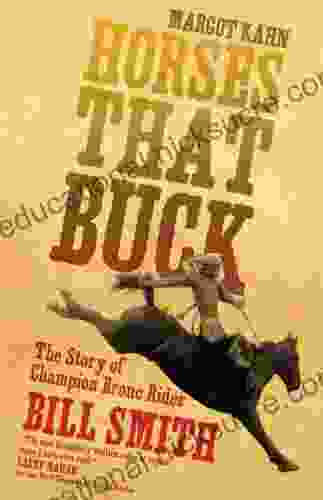
 Craig Blair
Craig BlairThe Story of Champion Bronc Rider Bill Smith: A Legacy of...
In the annals of rodeo...
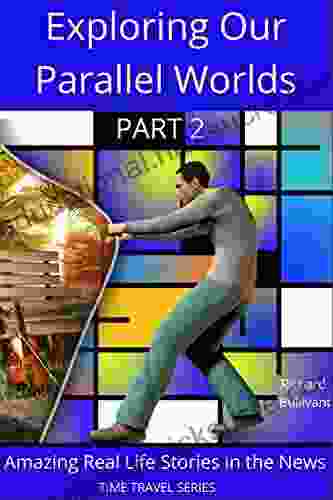
 H.G. Wells
H.G. WellsAmazing Real Life Stories In The News
The news is often...
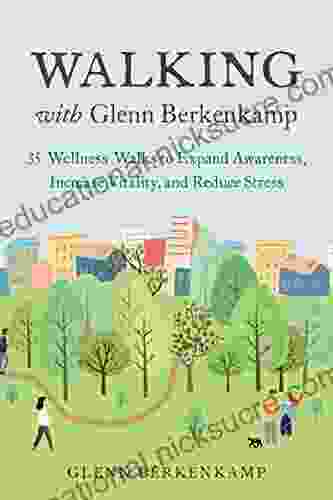
 Jordan Blair
Jordan Blair35 Wellness Walks to Expand Awareness, Increase Vitality,...
In an era where technology...
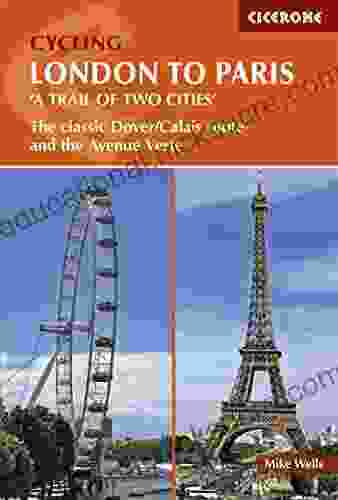
 Edward Reed
Edward ReedCycling London to Paris: An Epic Adventure in the Making
Are you ready for the...
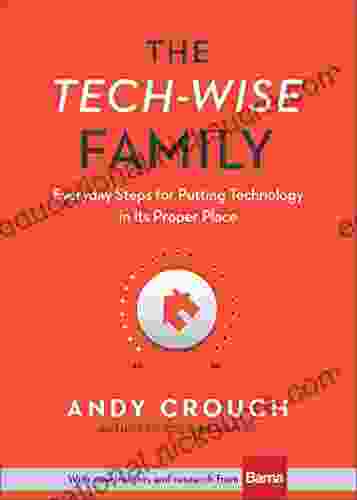
 Edgar Hayes
Edgar HayesEveryday Steps For Putting Technology In Its Proper Place
Are you constantly...

 Mitch Foster
Mitch FosterSat Math Mastery Advanced Algebra Geometry And Statistics
SAT Math Mastery Advanced Algebra Geometry...
5 out of 5
| Language | : | English |
| File size | : | 1558 KB |
| Text-to-Speech | : | Enabled |
| Screen Reader | : | Supported |
| Enhanced typesetting | : | Enabled |
| Word Wise | : | Enabled |
| Print length | : | 231 pages |










